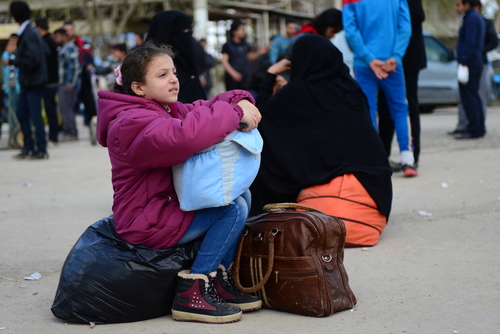Ministers want to send refugees back to Germany and Belgium to discourage travel
 The Dutch cabinet wants to make agreements within the EU on sending asylum seekers back to the European country they were in before reaching their final destination.
The Dutch cabinet wants to make agreements within the EU on sending asylum seekers back to the European country they were in before reaching their final destination.
Junior justice minister Mark Harbers, who focuses on refugee policy, said in an interview with the Volkskrant on Friday that this would mean asylum seekers who entered the Netherlands from Belgium or Germany would be sent back to those countries.
In turn, Belgium and Germany could send the refugee back to the EU country they had traveled though to reach the Belgian and German borders.
‘If refugees know this is how Europe works, they will be discouraged from moving on,’ Harbers told the paper.
The Netherlands has already raised the issue with some member states and it is due to be discussed in April, Harbers said. However, the Volkskrant pointed out, the plan is likely to be resisted by Greece and Italy, which currently have to deal with most new arrivals.
‘An asylum seeker who arrives in Europe should apply for asylum in that country,’ Harbers said. ‘They often don’t because they want to reach the Netherlands or Sweden.’
Under the current Dublin rules which date from 2003, refugees can be sent back to the first safe third country they arrived in, as long as that country accepts the evidence that the person was there.
New rules
The new government’s get-tough policy on refugees centres on making deals with other countries in Africa and the Middle East to ensure people fleeing war and hardship remain in the region they come from.
Once in the Netherlands, refugees will only be given residency permits for three years rather than five and they will no longer be able to claim welfare benefits or extra help in paying rent and health insurance for the first two years.
Some 16,000 refugees came to the Netherlands last year. In addition, 14,000 people arrived to join families who had been given residency rights.
Thank you for donating to DutchNews.nl.
We could not provide the Dutch News service, and keep it free of charge, without the generous support of our readers. Your donations allow us to report on issues you tell us matter, and provide you with a summary of the most important Dutch news each day.
Make a donation